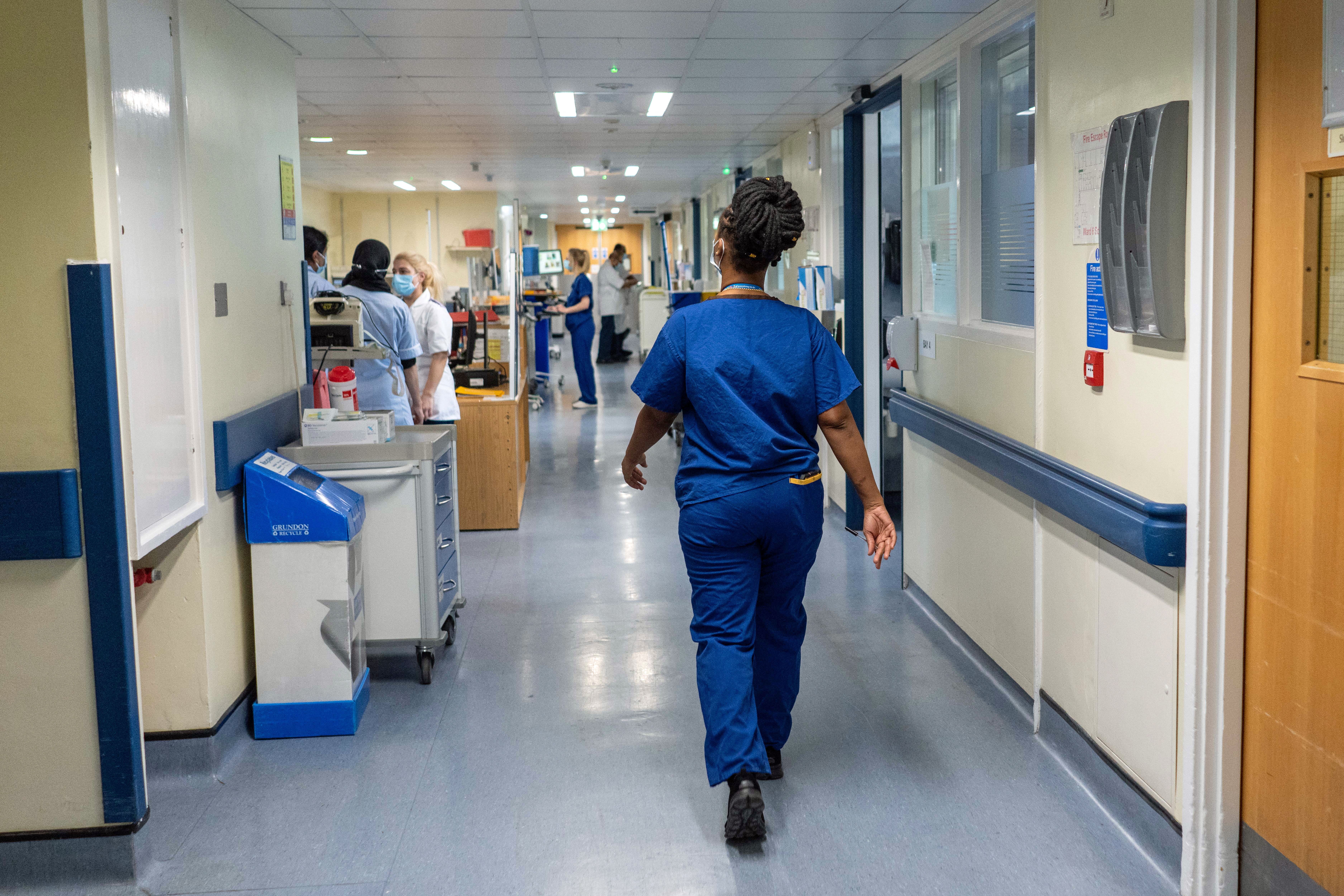Strike action hit more than 88,000 appointments in England, says NHS
Industry leaders accuse the government of ‘getting in the way’ of attempts to tackle record backlog of care

Strike action in the health service has led to more than 88,000 appointments being postponed in England, health leaders have said.
Industrial action by nurses, ambulance staff and physiotherapists has disrupted tens of thousands of appointments in just seven weeks at hospitals and across community services, NHS Providers said.
The organisation, which represents NHS trusts, accused the Government of “getting in the way” of attempts to tackle the record backlog of care by not reaching a resolution with health unions in the bitter dispute over pay.
The shocking scale of disruption is a direct result of pay disputes between the Government and unions. Trust leaders are worried this could skyrocket with more strikes
It said that ministers have the power to end the dispute by getting back to the table with unions and discussing pay for this financial year and working conditions.
“Their reluctance to do so is getting in the way of efforts to tackle elective recovery for patients,” said the body’s interim chief executive Saffron Cordery.
An estimated 7.19 million people in England were waiting to start routine hospital treatment at the end of November, according to NHS figures.
NHS Providers said hospital leaders were worried that disruption to the health services will “skyrocket” with more strikes.
In under a week, the NHS in England is set to experience the biggest industrial action in history as nurses and ambulance staff walk out simultaneously.
It comes as the Health Secretary is due to be quizzed on industrial action on Tuesday when he appears before the Health and Social Care Select Committee.
Steve Barclay will also be grilled on NHS winter pressures, the backlog of care and workforce shortages.
Before his appearance, Mr Barclay has been invited to a private meeting with ambulance workers from the GMB union.
Ms Cordery said: “More than 88,000 patients in the NHS have now had their appointments postponed due to the strikes in the last seven weeks.
“The shocking scale of disruption is a direct result of pay disputes between the Government and unions.
“Trust leaders are worried this could skyrocket with more strikes, which is an outcome no-one can afford as trust leaders try tirelessly to bring down the elective care backlog.
“Worryingly, this could be just the tip of the iceberg if strike action continues.
“For many trusts, Monday [February 6] will be the toughest challenge they’ve ever had as nurses and ambulance staff strike together for the first time, and in more places than before.
“Leaders are doing everything they can to prepare by putting plans in place to minimise effects on patients and making sure they can provide high-quality, timely care where possible. But without a resolution, disruption is inevitable.
“Nobody wants this to be happening, but staff feel they’ve been pushed to this by increasingly difficult working conditions including record-high staff vacancies, the cost-of-living crisis and the fallout from the pandemic.
“The daunting prospect of even more walkouts is especially worrying as the effects of a strike go well beyond the day itself. Demand piles up and those who avoided services on the day of a strike often come forward with worse conditions later on.
“Strike escalation will cause serious and profound damage to the NHS in the long term.
“We need to do everything we can to ensure industrial action doesn’t become the new normal.
“The Government has the power to end this disruption right now by talking to the unions about working conditions and, crucially, pay for this financial year.
“Their reluctance to do so is getting in the way of efforts to tackle elective recovery for patients.”
A Department of Health and Social Care spokesperson said: “Our sympathies are with anyone whose care has been affected as a result of strike action and we urge unions to carefully consider the impact on patients.
“The Health and Social Care Secretary has been having constructive discussions with unions about this coming year’s pay process for 2023/24 and is open to continue talking about what is affordable and fair.
“The NHS has made strong progress in tackling the Covid backlogs, virtually eliminating waits of over two years for treatment – the first target in the Elective Recovery Plan – and reducing the number of people waiting 18 months for treatment by almost 60% in one year.”
It comes after the Government launched a plan to free up urgent and emergency care services after senior medics described December as the “worst ever” for the health service.
The new plan, which is not backed by extra cash, will see the NHS buy 800 more ambulances, open 5,000 new hospital beds and treat thousands more patients at home via video link in so-called “virtual wards”.
Critics have said serious questions remain around the number of staff needed to improve NHS care.
Meanwhile, NHS England announced plans to transform NHS 111 to take pressure off hospitals by increasing patient access to specialist paediatric advice for children.
– On February 6, Royal College of Nursing (RCN) members at 73 trusts, Unite members at four ambulance trusts, and GMB members at eight NHS ambulance trusts will take industrial action simultaneously. On February 7, RCN members will take further industrial action at the same 73 trusts as the previous day. GMB members will also take industrial action in East Suffolk and North Essex NHS Foundation Trust, Mersey Care Foundation Trust, and NHS Blood and Transplant on February 6, and at Liverpool Women’s Foundation Trust on February 7.





